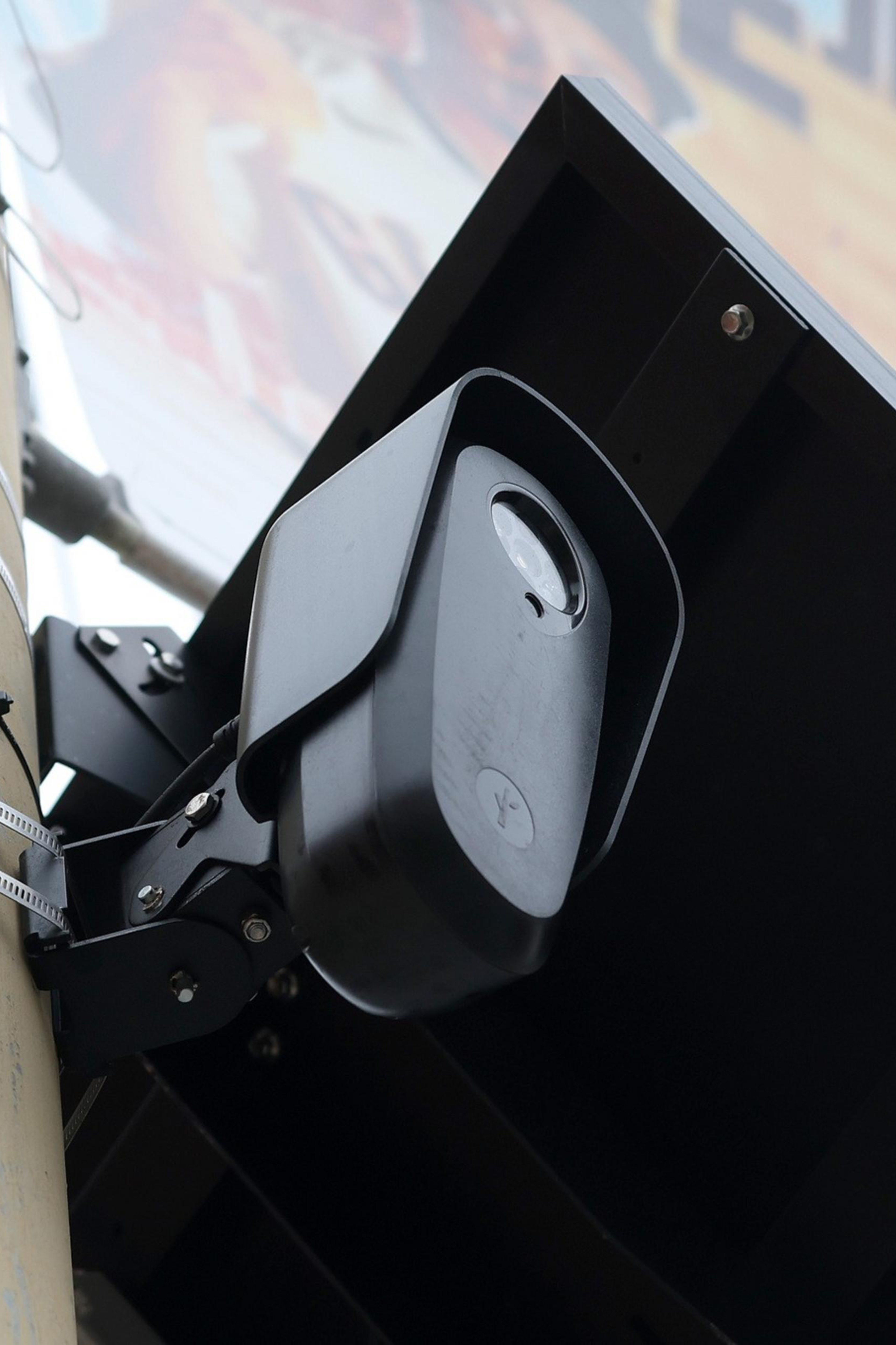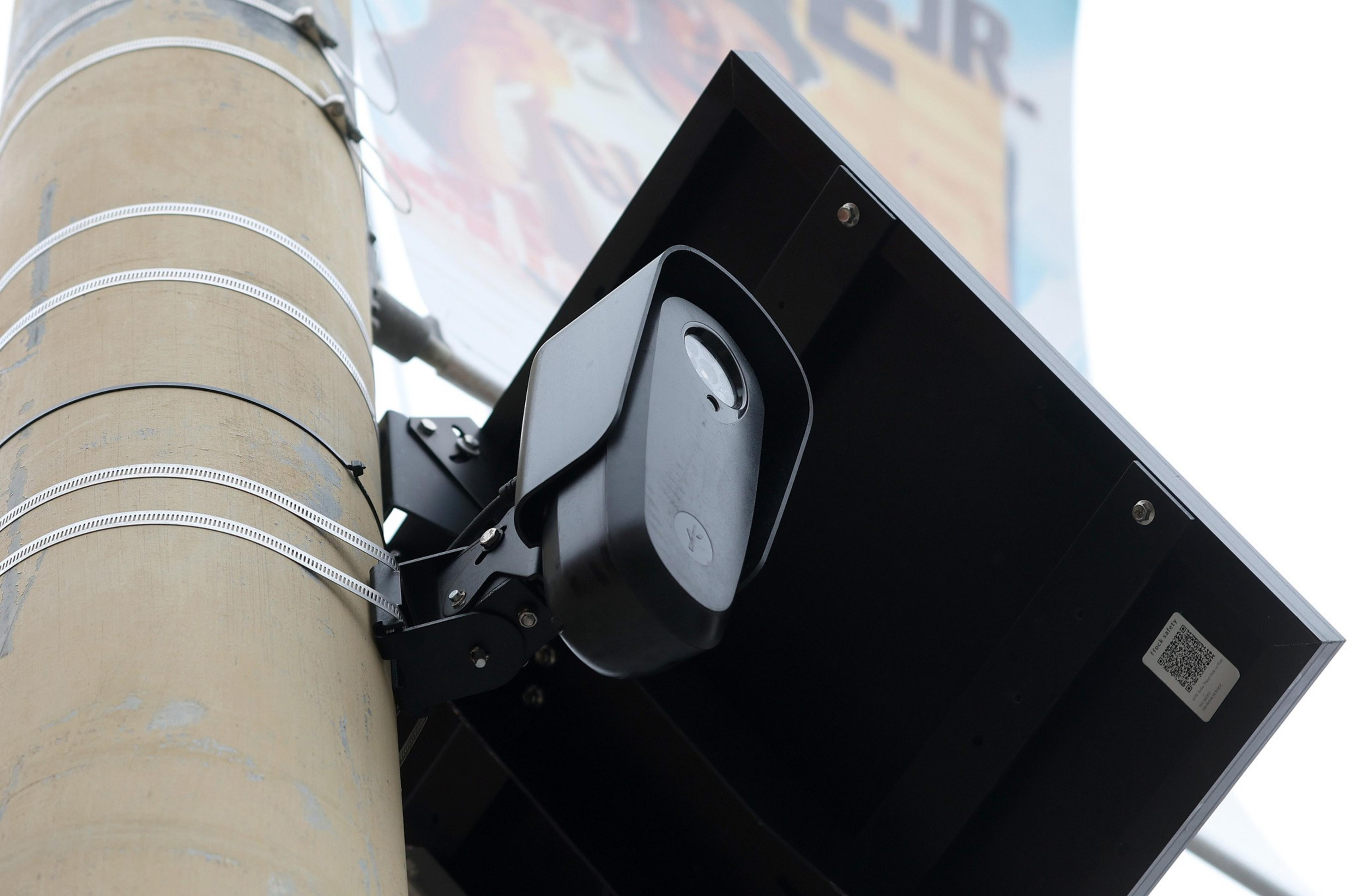San Francisco police let out-of-state cops run more than 1.6 million illegal searches of the city’s license-plate reader database — including at least 19 that were marked as related to U.S. Immigration and Customs Enforcement, according to records obtained by The Standard.
California sanctuary laws bar police from assisting in immigration enforcement, and another law (opens in new tab) prohibits sharing data from automated license-plate readers with out-of-state cops for any purpose.
The controversial surveillance technology, produced by Atlanta-based Flock Safety, captures the license plate and description of every passing vehicle, then stores the information for use in police investigations. In San Francisco, where 400 cameras (opens in new tab) line major roadways, it’s nearly impossible to escape the readers’ gaze.
Cops say this technology helps them fight crime — and Flock’s easy-to-use sharing tools make the process more effective than ever.
But reporting by The Standard, 404 Media (opens in new tab), and others has revealed that police nationwide are illegally handling license-plate data and giving ICE backdoor access to their Flock networks, renewing long-held concerns about abuse of the technology.
In July, The Standard reported that San Francisco Police Department personnel appeared to be illegally searching license-plate data for investigations conducted by federal law enforcement.
Now, newly unearthed logs show that the questionable sharing of data was far more widespread than previously understood: The SFPD gave out-of-state agencies direct access to the city’s data between at least August 2024 and February of this year, enabling a far higher volume of illegal searches than was known before.
It is unclear how many searches led to "hits" — instances where police found the vehicle they were looking for in the SFPD's system.

The search logs show that out-of-state agencies haven’t accessed the SFPD’s system since Feb. 11. It’s unclear what caused the apparent cutoff. Once a police department allows an outside agency to access its data, that agency is able to run searches without explicit additional approval until its permissions are revoked.
“According to a recent audit of our network, it appears agencies outside California had the ability to query SFPD’s Flock system for a limited period of time,” the SFPD wrote in a statement.
The department pledged to launch a transparency portal showing which agencies have access to SFPD's license plate data.
“The SFPD is currently running routine network audits to ensure no unauthorized users are querying SFPD's Flock data,” the department wrote. “We are confident that agencies outside California are not able to query our system.”
An SFPD spokesperson did not answer questions about the ICE-related searches.
The logs, obtained via a public records request, show every time a law enforcement agency searched the SFPD’s license-plate reader database.
Each entry includes the agency that initiated the search, the reason for the search, the time of submission, and the number of Flock networks the agency searched for a given plate. Police often simultaneously search thousands of Flock networks across multiple states and municipalities in a given query.
The SFPD redacted the reasons for searches in its public records disclosure. However, by cross-referencing agency names and timestamps with more than 35 million unredacted Flock searches published on the website Muckrock (opens in new tab), The Standard filled in many of the blanks.
For instance, the SFPD’s logs show that on Dec. 26 at 7:16 p.m, the Franklin County Sheriff’s Office in Georgia made a search of San Francisco’s data that was later redacted.
But logs from the Danville Police Department in Illinois — another of the 5,757 law enforcement agencies queried in the same search — are unredacted. The reason supplied: “ICE FUGOPS,” an apparent reference to the agency’s Fugitive Operations program, whose goal (opens in new tab) is to “locate, arrest and remove fugitive aliens from the United States.”
The logs show the SFPD’s data was searched at least 19 times for “ICE Fugitive,” “Assist ICE,” or specific ICE detention numbers. The majority of those searches were made between Oct. 23 and Dec. 27, 2024, by the Franklin County Sheriff in Georgia, the Dallas Police Department, and the Milford Police Department in Massachusetts.
Additionally, the California Highway Patrol on April 22 searched for an “ICE case.”
It’s unclear whether these agencies had reason to believe the targeted vehicles were in San Francisco. Because Flock’s tools allow police to query thousands of networks at once, it’s possible these were overbroad searches that checked every network to which the agencies had access.
That appears to be the case with the Milford Police Department’s search.
“We don’t go outside New England,” said Detective Lieutenant Kevin O’Loughlin. “If they fled out to California, we’d contact agencies there.”
O’Loughlin said his department collaborates with ICE to arrest criminal suspects who have Massachusetts warrants but does not enforce immigration law.
ICE has a criminal investigations wing that’s less known than its deportation operation, so a search for “ICE case” isn’t necessarily related to immigration.

The Dallas Police Department will “assist any law enforcement agency when they are conducting lawful activity in our jurisdiction,” said spokesperson Corbin Rubinson. He did not answer questions about whether that extends to immigration enforcement.
The CHP said it is investigating the April 22 search. It first said it was launching an internal probe in July, when The Standard reported that the agency made the same search of the Oakland Police Department’s Flock data.
Months later, it’s unclear why the investigation has not reached a conclusion. Flock’s internal logs show the precise time each search is made, along with the name of the staffer who made it.
“Again, if any CHP personnel requested license plate data on behalf of ICE for purposes of immigration enforcement, that would constitute a blatant violation of both state law and the department’s longstanding policy,” CHP spokesperson Jaime Coffee wrote.
The Franklin County Sheriff, which made the majority of the searches marked as related to ICE, did not respond to requests for comment.
"Cities own their own data, choose with whom and when to share that data with, and can revoke access to that data at any time," a Flock spokesperson wrote.
The spokesperson noted that when Flock discovered some California agencies had opted into its nationwide data sharing system in June, it removed (opens in new tab) them from the network "to make compliance for California agencies easier." It is unclear whether the SFPD had opted into the national lookup network.
City contracting documents show the SFPD agreed to pay Flock more than $3.9 million for access to its technology between Feb. 20, 2024, and Feb. 19, 2027.
Privacy advocates and city leaders called for officials to enforce surveillance and sanctuary city laws.
“The Police Commission and Mayor Lurie need to codify penalties for anyone sharing San Francisco’s ALPR data with other agencies for immigration enforcement purposes,” Supervisor Jackie Fielder said in a statement, using an acronym for “automated license-plate recognition.”
Brian Hofer, executive director of the privacy group Secure Justice, urged California Attorney General Rob Bonta and City Attorney David Chiu to hold police accountable.
“There’s always been this ‘trust us’ position from law enforcement,” Hofer said. “‘We’re going to hold your data. It’s in our custody. We’re going to protect it.’ But when you see these numbers of violations and them openly flaunting the law, it calls all of that into question.”
A representative for Chiu declined to comment. Bonta's office said it has been "actively engaged with local law enforcement" and pointed to a 2023 bulletin (opens in new tab) it issued reminding police that they cannot share license-plate data with out-of-state agencies.
“The volume is stunning,” Hofer said. “It’s really the height of irony for a police department to say, ‘We need to go catch the bad guys for breaking the laws.’ Meanwhile, they’ve violated the law 1.6 million times.”

